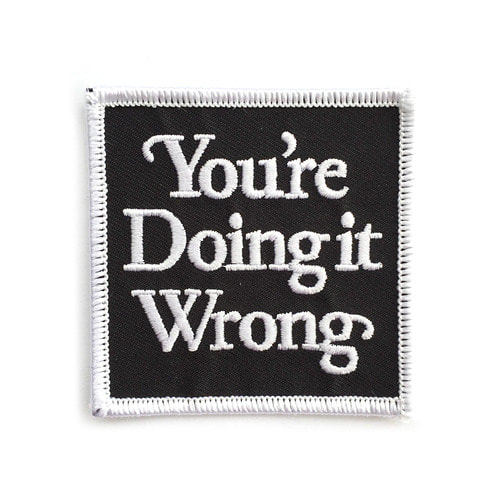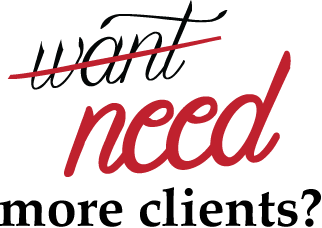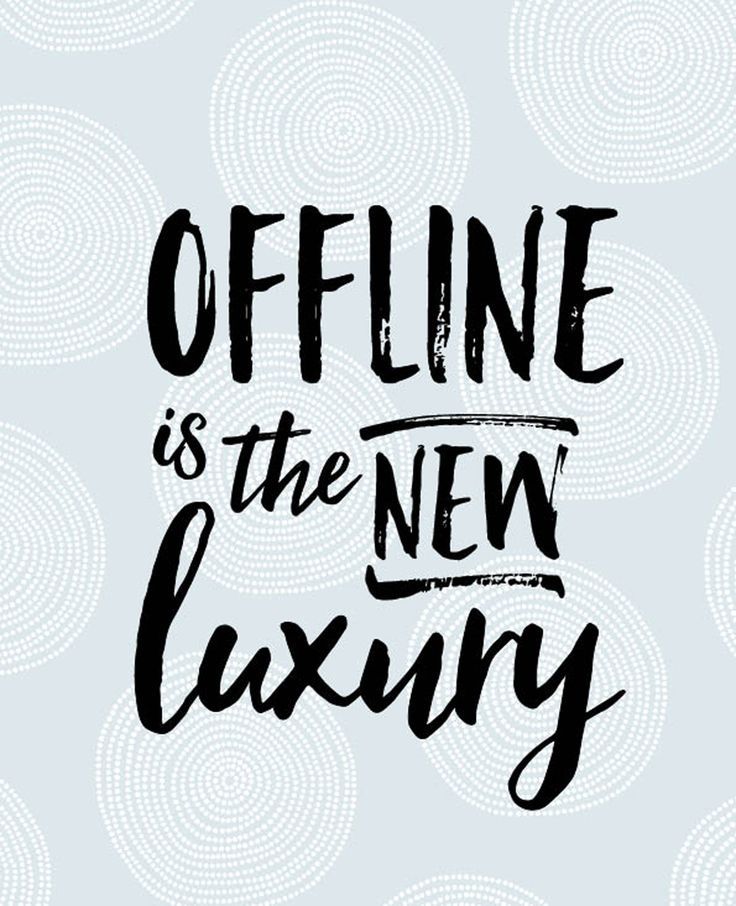|
This week we discuss the reasons behind why so many of us wait to lead, how we can recognize our abilities to lead by addressing our fears and how to transition successfully into a leader without the need for a management job title
0 Comments
It’s common to think “I don’t have the job title which warrants me to be a leader”. Early in my career I struggled with this exact mindset challenge. I thought “if I don’t have a title which gives me the power to lead, how and why would anyone listen to me in the first place”. This mindset is especially true and often found with people who are in individual contributor roles. We use the excuse “I don’t have the title to lead” as our justification for not stepping up to taking action, even in times when we know it’s what is needed. I was well into the third year of my career when a senior partner in our office pulled me aside and gave me some much needed advice. Let’s put it this way, it was a thump on the head in a caring way. What he said was simple, yet incredibly eye opening: “Your job title doesn’t give you permission to lead or make you a good leader people will respect, it’s more about your ability to help others achieve their goals while having their backs. We can lead from any role in the company, there’s no need to wait to be told you can lead or given a title which means people have to listen to you. So, why are you waiting?” Urghhh, he had a point, even though in the moment my ego still wasn’t allowing me to hear it. After a couple days of digesting this feedback I had to admit I felt pretty dumb about the way I was thinking about leadership and my role within the company. I had to get over my ego and the thought that I needed a title to justify my ability to lead when the reality was, and still is, good leaders are those who take action and help others. They listen, guide and influence because they’re passionate about helping others, first. This in turns builds trust, respect and comradery – these are the building blocks and keys to being a good leader. Titles aside, those who can build trust with their colleagues gain respect which leads to healthier interactions. These things are possible and certainly most achievable even if your job title doesn’t reflect management. Whether you have the leadership job title or not what’s important are your actions and the intent behind why you do them. Follow these steps to help guide you down the path of leading successfully: 1.Let Go of Fear – the basis for our lack of leadership is fear; fear we won’t do it right, fear people will reject us, fear we’ll look stupid in the process, etc.; once we acknowledge fear is what holds us back from doing what we know is right or what we want we then can go about changing our perspective to improve the situation 2.Build the Foundation - for what successful leadership is by reading “The Go-Giver” by Bob Burg and John David Mann 3.Reflect - on who you are as a person, professional, peer and employee of your company a.What skill sets or areas of influence do you possess which you could use to positive impact, support or mentor others within the organization 4.Channel Your Vulnerability – good leaders understand this truth, to be trusted as a leader we must be vulnerable. This doesn’t mean crying because the creamer when bad and ruined your coffee, it means being honest and open with your intent, your struggles and perspectives to help people see who you really are. No leader is perfect. 5.Be a Coach – listen and guide as this is the pathway to good leadership; like the old proverb says “give a man a fish and they will eat for a day, teach a man to fish and you feed him for a lifetime” 6.Act - start small and pick one person or department you believe you can positively impact; talk with that person or department to share with them your ideas and why you believe this would be of value to them, get their buy in before moving forward 7.Inform Management - Share with your manager the idea you have to help support and mentor others within the company, .Be prepared to provide specifics on how this could positively impact the company 8.Consistency - implement a schedule you and your new mentee can follow which keeps you on track helping them achieve their goals, key thing here is to keep it natural don’t overdue it with processes and procedures Check out our Monday Quickie recap as Trisha Aure and Travis N. Smith discuss this weeks article, 'You're Doing It Wrong'; we cover ways to address miscommunication and how to ensure successful project/ work completion between employees, consultants and suppliers. To view the article: https://lnkd.in/gyFJmcE Monday Quickie - You're Doing It Wrong7/22/2019 “They gave us world class, but all we needed was the basics.”
Last week I was speaking with a VP of Quality at a small medical device company at which point he politely complained to me about a recent experience he had with a consultant their company brought onboard. The company was implementing a new online quality management system (QMS) and was utilizing this consultant to get it up and running. The VP shared with me his irritation about how the consultant came in and took on the project as an expert in the field. The consultant had done many QMS implementations prior and came with good recommendations of his work. As the conversation went on the VP share further irritation about his experience working with the consultant. He brought in an expert to do a job that was rather straight forward yet that’s not what the company got in the end. Unfortunately, the consultant failed to understand one of the most important aspects of his job – understand the needs of the customer and implement accordingly. “We’re a small company, we don’t need all the bells and whistles right now [from a QMS system]. We just need a system that keeps us in compliance while making things easier from a process flow standpoint.” The VP was sharing with me a painful experience he was having as a result of someone doing work for him and not understanding what was actually needed in the moment to be successful on that project. Sometimes what’s needed is the basics, not world class. The key is knowing when each of these is appropriate. All to often we show up to a project or work with the idea we’re going to dress up the proverbial pig ready for a fancy night out on the town. This pig of ours is going to look amazing, amazing because of the work we did to get it there. However, we end up missing the mark because we don’t bother to ask the right questions along the way. If we had bothered to ask the right questions to understand what was truly needed by the company and the key stakeholders we may find out the ‘pig’ just needs a new pair of shoes, not a whole wardrobe change. Here’s how this played out in the scenario above with my client and VP…
Here’s the rub on the situation. If the consultant had bothered to ask the vital question of their client upfront “What does ‘success’ looks like at the end of the project?” he would have found out the client needed a practical QMS which met the basic needs of their product and regulatory requirements yet did not need a lot of the fancy bells and whistles larger companies utilize with their QMS. Basically, this small medical device company needed a QMS that was straightforward, basic yet allowed them to upgrade their company to meet the regulatory requirements for their product. The client wanted a no frills, basic system yet what they got was a world class system they’ll probably never fully utilize. Key Takeaway: Don’t assume your work or project requires you to put forth world class service. Sometimes ‘good enough’ is all that’s needed. Knowing the different between ‘good enough’ and world class work outputs is a vital skill to develop and implement in your career. Action Item: Before you begin your next project at work think to yourself “what’s really needed here? The basics or something more?”. Then actually go ask the key stakeholder in charge. Doing this shows an ability to think big picture with an appreciation for what’s best for the company, not what’s best to make you look good as a result of the work you can do. Are you dealing with the rollercoaster highs and lows associated with being a consultant? (aka gig, freelancer, solopreneur, etc.)
Remember life before the internet? What about the smartphone? If you grew up pre 2000’s you know exactly what life was like before technology forever changed the way we interact with others, work, play and pastime. I remember the days of doing research papers in school and having to use the card catalog system in the library to search out information. It was agonizing and tedious, but hey, it’s all we knew or had for that matter. Technology has certainly enabled us to be much more efficient in many aspects of our lives. As we’ve grown in our use of technology so have the side effects that come from our technology dependency in the office and at home, especially with our smartphones.
The side effects I speak of, impatience and declining interpersonal skills, directly impact an incredibly important part of our being - our peace of mind. People have become increasingly more impatient than they’ve ever been. I know because I’m one of them. The golden rule in business back in the day was to return a phone call within 24 hours. Today, if we don’t get a response in 30 minutes we think the person on the other end is avoiding us or must not have received our call. We then resort to a whole list of communication outreach shenanigans, frantically trying to get a response by texting, Facebooking, IG-ing, LinkedIn Messenger, emailing from three different addresses and blasting off SnapChats. Sound familiar? The result of our increased impatience is a heightened level of stress. When we’re stressed the last thing on our minds is peacefulness which leads to bad decision making, mistakes and a decline in our health. Stress is the real McCoy here as over 75% of all doctor's office visits are for stress-related ailments. Our interpersonal skills are also experiencing side effects of smartphones and their associates technologies. At an alarming rate we’re focused on the technology in front of us rather than the people and experiences we’re surrounded by. Ever been to a restaurant and see a couple facing one another, not saying a word, both eating ferociously while they text and bounce from one social media app to the next? An entire meal goes by with little more said than ‘pass the guac’. Parents at playgrounds are absorbed into their phones while their kids play about unaware that mom and dad are more interested in the scrolling unyielding stream of meme’s and picture perfect vacation images of strangers rather than their own kids development and experiences. Our conversations and relationships suffer because we are fixated on what is happening in the world thousands of miles away rather than what’s right in front of us. Folks, it’s not a pretty picture. Smartphones, while useful in many ways, have had a dramatic change on the way we operate. While I know the above to be true, I’m also an addict. Like many of you reading this I too am addicted to the never ending stream of nonsense on my phone. Yesterday a good friend of mine encouraged me to do a little test, one that I’ve jumped into wholeheartedly. As I write this article I’m 24 hours into a social media hiatus. I’m going for a month off, then from there I’ll evaluate how my life is for better (my hunch is this will be the case) or for worse without social media. I’ve deleted all social media apps from my smartphone and am excited to experience an existence without those distractions. I encourage you to join me in a month of social media/ smartphone hiatus. Use these five techniques to unplug so you can start enjoying life in the moment:
Companies which design, develop and manufacture products often times need additional support to accomplish their goals. These are the three main reasons companies use outsourced engineering service firms. Twice in my career I've been in a slump.
Statistically I'm not sure where that puts me in comparison to others having to do with 'career slumps' however I can openly and honestly admit those two experiences were incredibly challenging and equally as eye opening in my personal and professional development. What is a career slump? It can be a lot of things. A career slump can be a period marked with stagnation, little to no growth, periods of failure, challenges with our mindset and passion to succeed. Career slumps are all of these things and perhaps none of them at the same time, it just depends on your situation. A career slump could include mediocrity, boredom for extended periods. Lack luster attitudes and or a general malaise where we 'mail it in' on the daily. These are characteristics of a career slump. What I've learned from my two career slump experiences was it was near impossible to get out of it until I understood what got me there in the first place. I'm nervous talking about this. Being vulnerable on a stage like social media isn't necessarily an enjoyable walk in the park yet I've learned that many others share my same struggles so I choose to offer my experiences in the hope that it helps others. Sharing also helps me understand myself better and become more confident with who I am, what I'm capable of and what my 'why' is for doing what I do. There, right there. That's the answer! Getting out of a career slump isn't some magical experience or event that gets you back on track, its sharing and talking about what you're experiencing, how you're feeling emotionally and being aware of how that's impacting you and your career. Whether we want to admit it or not all of us at one point or another will experience a career slump. No one is perfect and times of strife in this life, more accurately our careers, are inevitable. The key is to dealing with a career slump is acknowledging it, accepting that it’s real then acting to change it. Similar to the psychiatric process called the ‘five stages of grief’ how we handle dealing with a career slump is a process of admittance, understanding and then action. It's a lot of soul seeking and working through your feelings to try and understand your mindset and what brought you to your present place. Here's what has worked for me: 1. ADMIT: Recognize and admit things aren't great. Say it out loud. 2. PRESENT STATE: Ask yourself how you feel in this moment. Write it down. 3. EVENTS: Trace back the last 6 months to a year and unwind your experiences, successes, struggles to understand the chain of events which brought you to your career slump 4. DIGEST: Sit on this information for a couple days. How does it make you feel? Do you now know why you're in a slump? 5. SHARE: Go find two people to talk with. Share with them your situation and present feelings on the matter. (I know...this is a lot of talk about feelings and emotions. Sounds awful, right. The quicker you can get beyond that the quicker you'll find yourself on the road to confident successful empowered you) 6. KEEP GOING: Keep sharing your experience with people. The more the better. You'll begin to notice the more you talk about it the better you feel and more accepting you are of the situation. 7. TRANSITION: Now that you know what's going on start out every day with 20 minutes of mindset activities to get you on the road to a positive you (workout, yoga, meditate, do your favorite activity, listen to music, sit in silence, etc.) It’s all about cultivating a positive mindset which drives who you are and your actions for the day in front of you. 8. ACT: commit to yourself that the experiences you had leading up to your career slump don’t define who you are. In fact, they make you better! Now is when we need to make some changes to our career. Implement a new office schedule, get rid of work if you’re overloaded, take on a new project to get yourself out of your comfort zone. Maybe you need to find a new job! Whatever it is, the new you, the new focus must be different than what you were doing the past month. If we change nothing about our actions and mindset we’ll continue to be who we were during the slump. This eight step process doesn’t happen immediately but you'll begin to notice a change in your overall outlook and mindset after a couple weeks of this. Keep it up, don’t falter. As positivity and empowerment come back into your life so too will your energy to kick ass and take names in your career. About the AuthorTravis Smith is the founder and managing director of Square-1 Engineering, a medical device consulting firm, providing end to end engineering and compliance services. He successfully served the life sciences marketplace in SoCal for over 15 years and has been recognized as a ‘40 Under 40’ honoree by the Greater Irvine Chamber of Commerce as a top leader in Orange County, CA. Categories
All
Archives
April 2024
|
Visit Square-1's
|
|









 RSS Feed
RSS Feed


